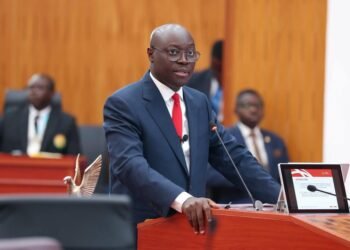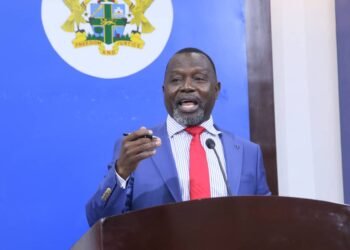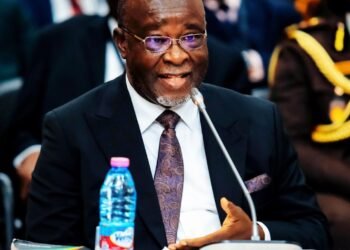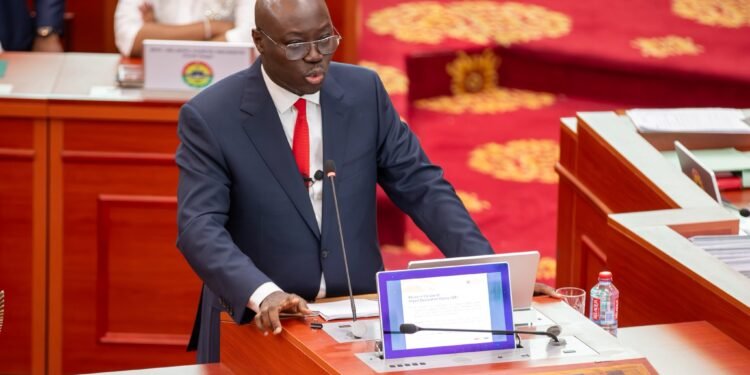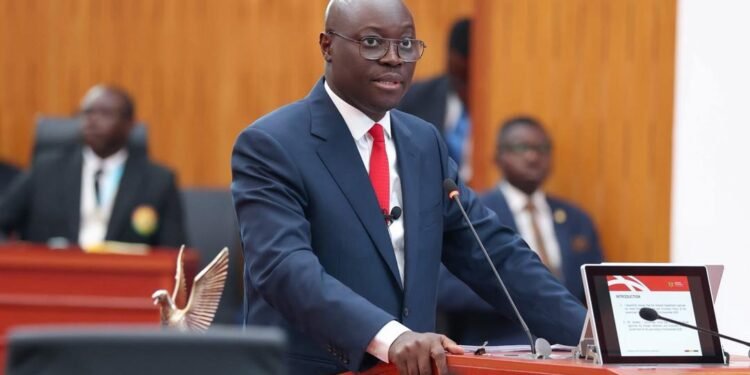President John Dramani Mahama has announced the lifting of the temporary ban on state land transactions, while warning that a new era of strict compliance, transparency, and accountability must guide every allocation, lease, or sale going forward.
Addressing the inauguration of the new Lands Commission, President Mahama described Ghana’s land administration system as one of the country’s most dysfunctional and distrusted institutions, plagued by corruption, multiple sales, encroachment, and abuse of power.
He said the ban, which his government placed on land transactions earlier this year, was meant to allow a comprehensive review of processes and identify reforms necessary to reset the sector.
“For far too long, our land administration system has become a symbol of everything we seek to change in Ghana—confusion, conflict, and expropriation.
“Public confidence in land governance is at an all-time low. Land acquisition is fraught with multiple sales, unending litigation, extortion, and even violence.”
President John Dramani Mahama
He stressed that the problems cut across the country—from the illegal alienation of forest reserves in the Eastern Region to the conversion of public lands in the north—but were most acute in the Greater Accra Region.

“We have witnessed a national tragedy of greed, impunity, and dysfunction,” he lamented, noting that public lands intended for schools, hospitals, and ecological protection have been appropriated by influential individuals who should have been safeguarding them.
According to the President, the dissipation of public lands has not been driven by ordinary citizens but by politically exposed persons who abused their positions.
“Prime government lands, ecological buffer zones, school land reserves, forest enclaves, Ramsar sites, and even lagoons have been appropriated by individuals who have been given the responsibility of protecting them. This must end with this commission”.
President John Dramani Mahama
Stronger Regulatory Framework
President Mahama explained that the decision to lift the ban comes with a stronger regulatory framework. He emphasized that all future land transactions must undergo transparent processes, digital verification, and oversight mechanisms.
“The lifting of this ban must not signal a return to business as usual. It is a signal that a new disciplined era of land management has begun”.
President John Dramani Mahama
Outlining his government’s reform agenda, President Mahama announced a four-pillar approach to reset the land administration system. The first pillar, he said, is to restore public confidence in land administration through transparency, fairness, and justice.
The second is to reverse illegal land transactions, reclaim encroached lands, and protect public assets. The third focuses on digitizing, modernizing, and decentralizing land services to ensure access and efficiency, while the fourth aims at harmonizing customary and statutory land systems to promote coherence and equity.
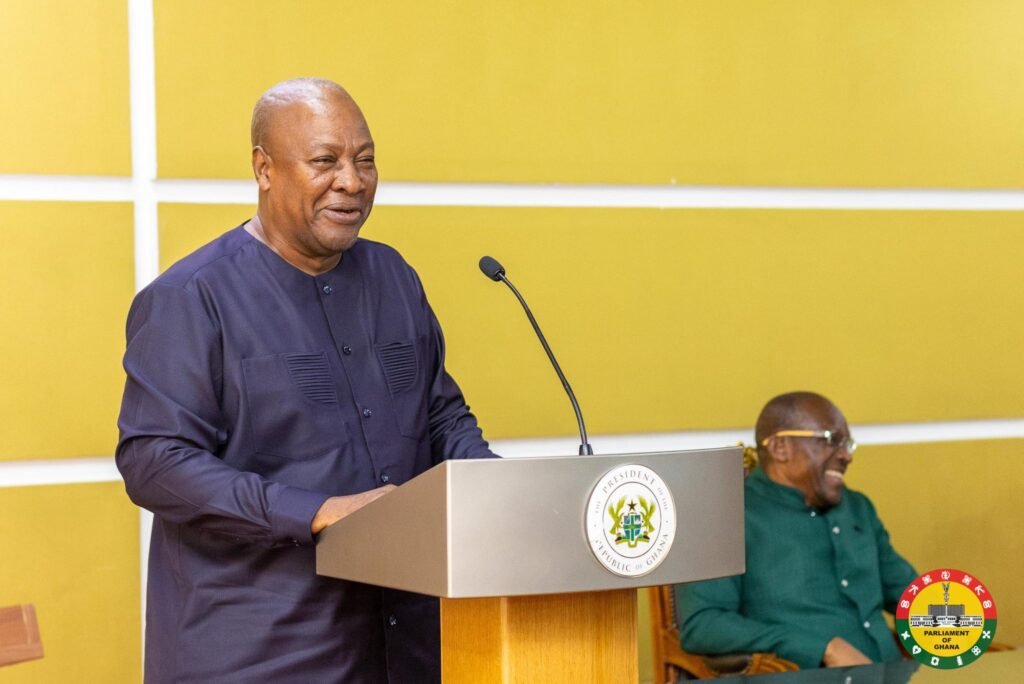
Comprehensive Audi
As part of these reforms, the President directed the Ministry of Lands and Natural Resources and the Lands Commission to immediately begin a comprehensive audit of all state lands allocated, leased, or sold, particularly between 2017 and 2024.
This audit, he stressed, will cover lands acquired for schools, hospitals, and other public institutions, as well as forests and ecological zones that may have been converted unlawfully into private use.
“Where illegality or impropriety is discovered, such transactions will be reversed, and the land will be recovered to the government by law”.
President John Dramani Mahama
He linked the need for reforms to the wisdom of Ghana’s ancestors, who regarded land as sacred. But decades of mismanagement, political interference, and institutional weakness, he argued, had eroded that principle and left the system vulnerable.
Independent surveys, he said, have consistently ranked the Lands Commission among the most distrusted institutions in Ghana.
“The unrestrained dissipation of state lands is not just an economic loss—it is a betrayal of trust,” he warned, vowing that his administration would ensure accountability and discipline.
President Mahama’s remarks highlight the government’s recognition of land administration as a central governance issue that affects not just development but also social stability.
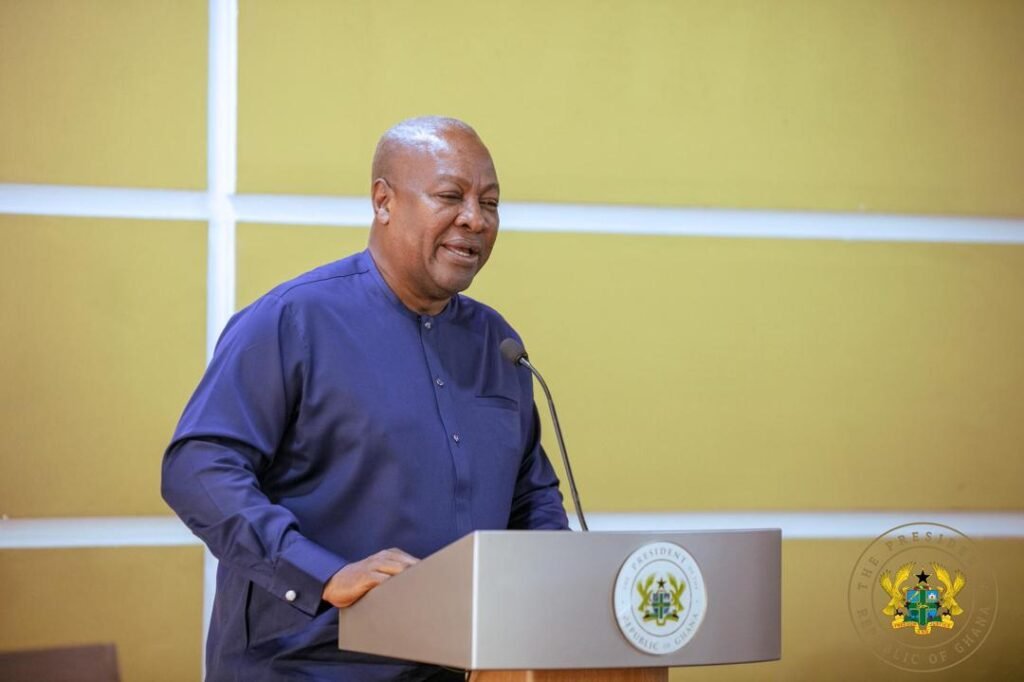
By tying the lifting of the ban to a broader reform agenda, he sought to assure Ghanaians that a new chapter was beginning, one where land would be managed for the collective good rather than private gain.
“This is a bold reset. We must embark on this journey with discipline and resolve, so that land, which is our heritage and our children’s inheritance, is preserved and managed in a way that serves all Ghanaians.”
President John Dramani Mahama
The President’s directive to reclaim improperly allocated lands and strengthen oversight mechanisms signals potential resistance from vested interests. However, his framing of the reforms as both a moral and governance necessity sets a clear tone for the administration’s land policy going forward.
READ ALSO: Chamber of Mines Warns Against Cutting Mining Lease Tenure






